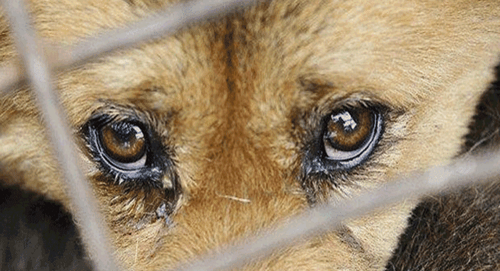“The greatness and moral progress of a nation is measured by its treatment of animals.” - Mahatma Gandhi
The Equal Right to Life for All Living Things in Nature: A Matter of Conscience and Necessity
Nature is a complex balance in which millions of species live together in harmony. As humans, we are part of this system, but we have a great deal of domination over other living beings. Yet every living thing has the right to live, to exist freely and to share the planet. This right should be considered not only from an anthropocentric perspective, but also in terms of the sustainability of the entire ecosystem.


The Right to Life is Universal
Many philosophical and religious teachings recognize the right to life as sacred. For example, belief systems such as Buddhism and Jainism embrace the principle of non-violence (ahimsa) and preach respect for all living beings. Modern animal rights advocates also argue that animals have the capacity to suffer and should therefore not be exploited.
Scientifically, the emotional and cognitive abilities of living things are now better understood. The loyalty of dogs, the mourning of elephants and the self-awareness of dolphins show that these creatures are not so different from humans. So why are some species still considered more valuable than others?
Human domination over nature
Since the Industrial Revolution, humanity has built a system based on controlling and exploiting nature. Forests are being destroyed, animals are kept in cruel conditions on industrial farms and the oceans are filled with plastic. In the process, many species have disappeared or are threatened with extinction.
Yet every living thing in nature has a function. Without bees, pollination would stop, without predators, herbivore populations would increase uncontrollably. By disrupting the ecosystem, humanity is actually putting its own life at risk.


Animal Rights and Legal Regulations
In recent years, important steps have been taken on animal rights. In many countries, animals have been removed from the status of “property” and defined as “sentient beings”. In Turkey, Law No. 5199 on the Protection of Animals prohibits mistreatment of animals. However, there are still major shortcomings in practice.
Stray animals are poisoned, creatures kept in unnatural conditions in zoos suffer psychological trauma, and millions of animals suffer in experiments. This situation can change not only with laws but also with social awareness.
What Can We Do?
-
Conscious Consumption: Industrial livestock farming is one of the most damaging industries. Reducing meat consumption or switching to a plant-based diet is an important step for both animals and the planet.
-
Supporting Animal Welfare: You can support shelters by volunteering, feeding, adopting or donating stray animals.
-
Protecting Natural Habitats: Support environmental organizations to protect forests, wetlands and oceans.
-
Education and Awareness: Instilling in children a love for animals and an awareness of nature helps future generations to be more sensitive.
Conclusion
The equal right to life for all living things in nature is not only an ethical issue, but also an ecological imperative. If we as humanity do not learn to live in harmony with other species, the future of our planet will be at risk. We must remember that this world is not ours alone; the right to life of every living thing we share is as precious as our own.
